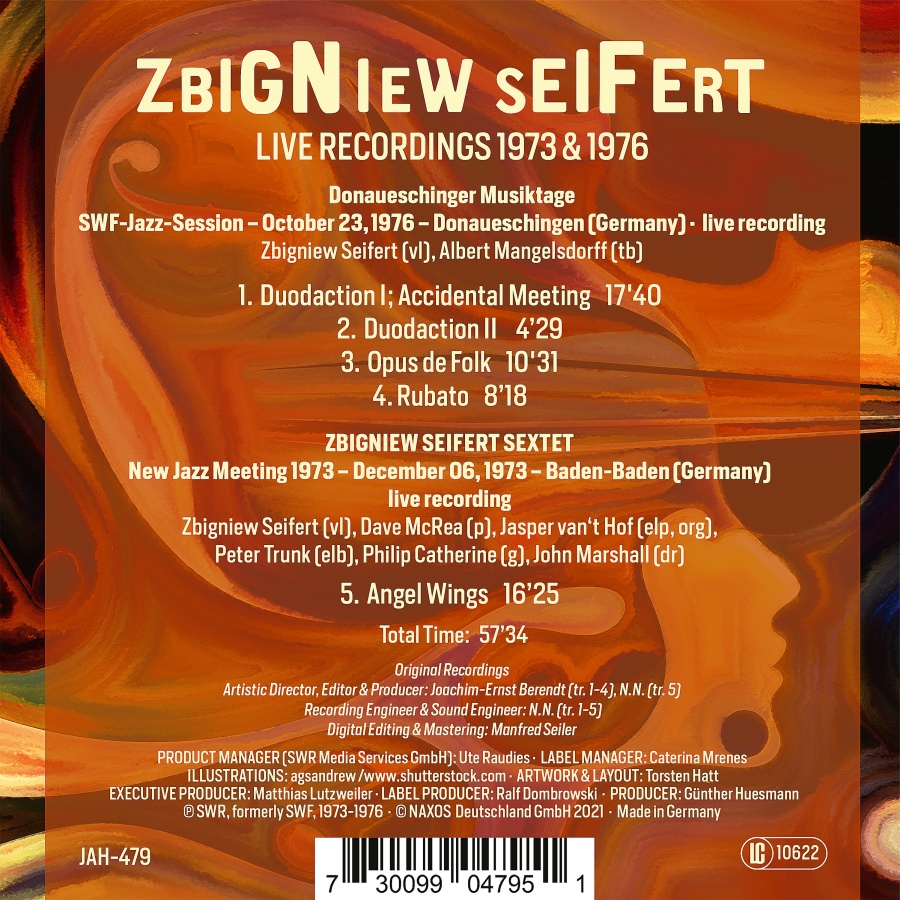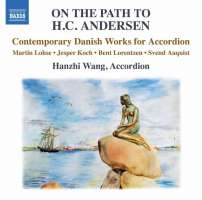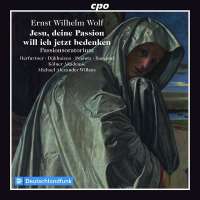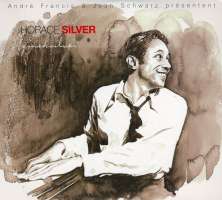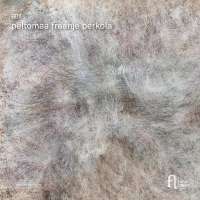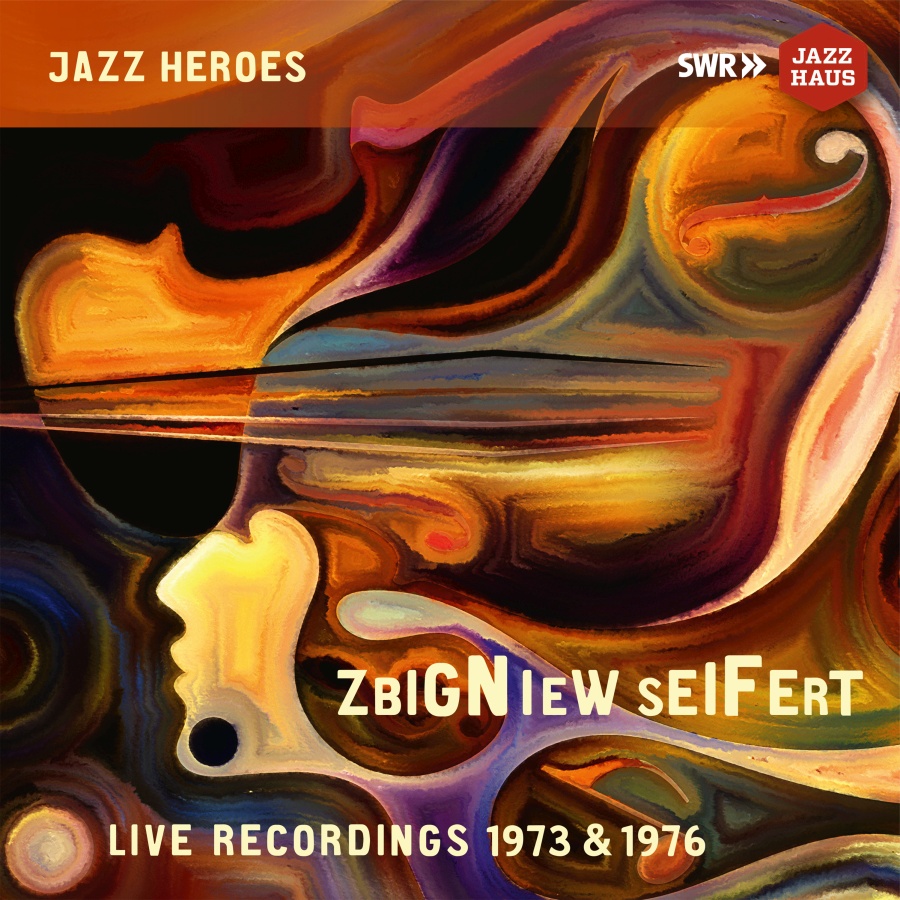
tytuł
Zbigniew Seifert, live recordings 1973 & 1976
wykonawcy
Seifert, Zbigniew
nr katalogowy
JAH 479
opis
Zbigniew Seifert (1946–1979) initially studied violin in his home town of Kraków, became converted to woodwind in his pursuit of jazz, and then devoted himself again as a string player in the late sixties.
The big three – Coltrane, Coleman and Ayler – had blazed a path for the saxophone, down which legions of undistinguished imitators then trudged. But hardly any violinists dared to follow suit, lacking the playing skills to pull it off. Seifert was therefore an unintentional pioneer, because he was not interested in revolutionising his instrument. He wanted instead to discover the secrets of the heroes of his time and understand, for example, how Coltrane managed to convey impressions of texture without having to forego linear melodies. It helped that he knew how a saxophone worked musically. This attitude put him ahead of his contemporaries, who were still working their way through structure and aesthetics. That was probably one of the reasons, together with his early death from cancer, that Seifert was forgotten for so long by the jazz world.
The recordings in the SWR archive are therefore all the more exciting. Angel Wings is from 1973, a stimulating time for Seifert, during which he left Poland and settled in West Germany. The duo recordings that were made three years later in Donaueschingen are real gems; they show that Seifert had in Albert Mangelsdorff a partner who understood him. Like Seifert, the trombonist had fought battles to liberate his instrument from brass conventions and, by simultaneously overblowing and singing, he attained polyphony on the instrument.
nośnik
CD
gatunek
Jazz
producent
Jazzhaus
data wydania
09-02-2021
EAN / kod kreskowy
730099047951

(Produkt nie został jeszcze oceniony)
cena 64,00 zł
lubProdukt na zamówienie
Wysyłka ustalana indywidualnie.
Darmowa wysyłka dla zamówień powyżej 300 zł!
Darmowy kurier dla zamówień powyżej 500 zł!
sprawdź koszty wysyłki